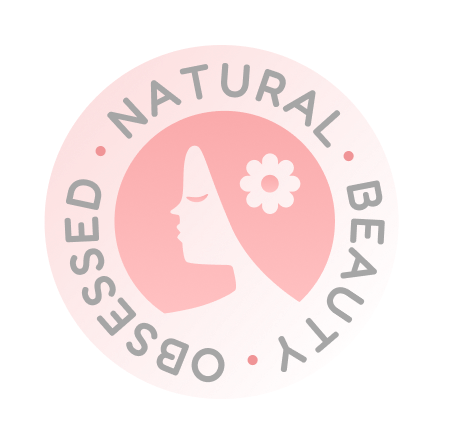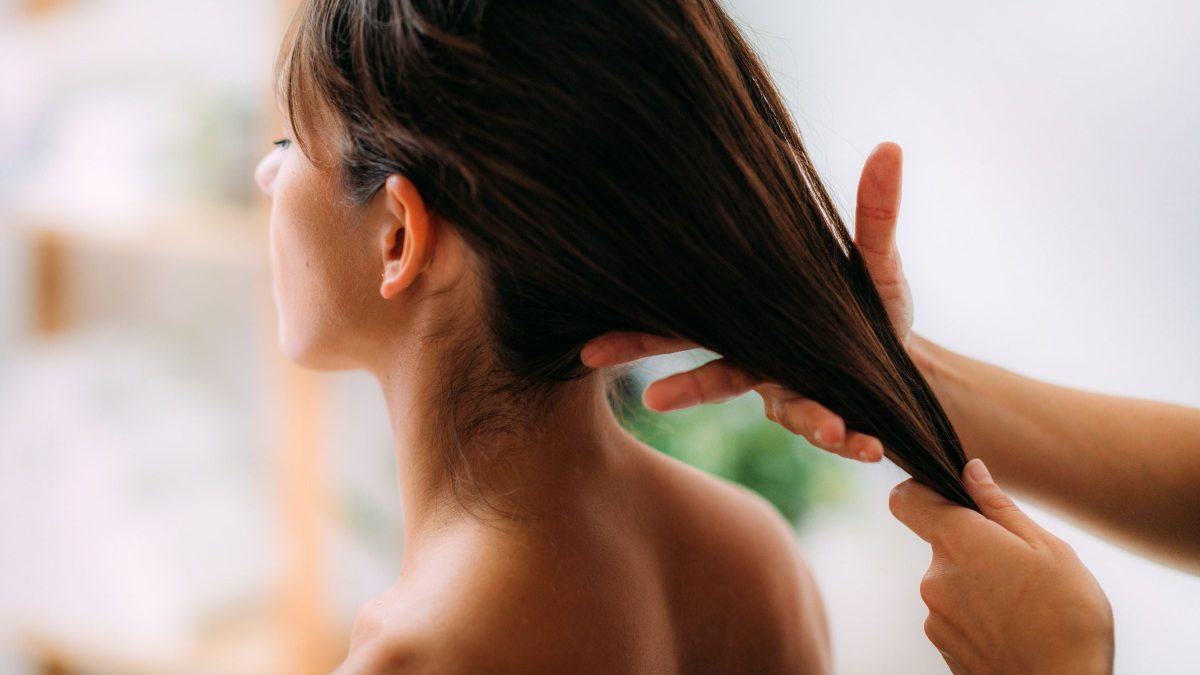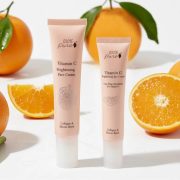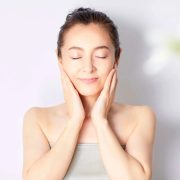Revitalize Your Hair with Time-Tested Oiling Rituals and Natural Oils
Posted on November 28, 2024 Written by: 100% PURE®

Modern problems sometimes demand ancient fixes—like hair oiling, an age-old practice rooted in Ayurveda and other traditions, making a glorious comeback. While we wrestle with dryness, frizz, and hair loss caused by styling tools and stress, ancient wisdom swoops in with a shiny solution.
, the OG self-care ritual, nourishes, strengthens, and beautifies your strands, turning bad hair days into a distant memory. This time-tested technique doesn’t just soothe your scalp; it soothes your soul.
The History and Science Behind Hair Oiling
Hair oiling is far from a fleeting trend—it’s a ritual steeped in history, trusted across cultures for centuries. Hair oiling finds its origins in Ayurveda, the ancient Indian system of medicine, where it was used not only to nourish hair but also to calm the mind and balance doshas.
Traditional oils like coconut, sesame, and amla were prized for their strengthening and rejuvenating properties. Beyond India, Middle Eastern and African cultures also embraced hair oiling, using argan and castor oils to maintain luscious locks in harsh climates.
what ancient cultures knew all along: hair oiling works. Research shows that oils like coconut can penetrate the hair shaft, reducing protein loss and protecting strands from damage. Oils also form a barrier that seals in moisture, combats dryness, and shields hair from external aggressors like pollution and heat. Additionally, regular scalp massage with oils improves blood circulation, promoting hair growth and overall scalp health.

Benefits of Regular Hair Oiling
Hair oiling is a complete care package for your scalp and strands. From repairing dryness to preventing breakage, this timeless practice tackles modern hair woes with ease.
- Nourishing and Moisturizing Hair
Oils are like superfoods for your hair, deeply penetrating fibers to provide intense hydration and nourishment. By repairing dryness, they restore softness and shine, making your hair look and feel revitalized.
- Reducing Frizz and Enhancing Smoothness
Say goodbye to flyaways! Regular oiling tames and enhances smoothness, making it a game-changer for those with curly, coarse, or textured hair. It locks in moisture, leaving your mane sleek and manageable.
- Stimulating Scalp Health and Encouraging Growth
Scalp massages with oil are more than relaxing—they’re rejuvenating. The increased blood circulation delivers essential nutrients to hair follicles, potentially boosting growth and promoting a healthier scalp environment.
- Preventing Hair Breakage and Split Ends
Oils strengthen strands by forming a protective barrier, reducing hair breakage and preventing . Regular oiling ensures your locks stay resilient, minimizing damage and maximizing length retention.
How to Choose the Right Oil for Your Hair Type
Finding is key to unlocking its full potential. Whether your hair is dry, fine, curly, or sensitive, there’s an oil tailored to your needs. Here’s how to choose the best match:
For Dry, Damaged Hair
Opt for heavier oils like or , which deeply moisturize and repair damage. Follow up with to maintain a nourished, balanced scalp and promote overall hair health.
For Fine or Oily Hair
Lightweight oils like 100% PURE Organic Marula Oil provide hydration without weighing down fine strands. Pair with 100% PURE Kelp & Mint Volumizing Shampoo to keep hair fresh, light, and bouncy.
For Curly or Coarse Hair
Rich oils, such as or blends including , help tame frizz and lock in hydration. For even more manageability, follow oiling with for extra moisture and smoothness.
For Sensitive Scalp
Soothing oils like or lightweight, gentle 100% PURE Organic Marula Oil are ideal for calming irritation. Complement your routine with , which offers a gentle, scalp-friendly cleanse.
Step-by-Step Guide to Hair Oiling
Incorporating hair oiling into your routine is simple and deeply rewarding. Follow this step-by-step guide for maximum benefits:
Step 1: Warm the Oil
Start by warming your oil slightly—just a few seconds in a bowl of hot water will do. Warm oil penetrates the scalp and hair more effectively, enhancing its nourishing and hydrating properties.
Step 2: Apply Oil to Scalp and Hair
Divide your hair into sections and apply the oil directly to your scalp. Massage it in with your fingertips using gentle circular motions, then work the oil through the mid-lengths and ends for full coverage.
Step 3: Scalp Massage Techniques
Scalp massage isn’t just relaxing; it’s beneficial. Use your fingertips to massage in circular movements, applying gentle pressure to stimulate blood flow and boost hair follicle health. A few minutes of this can make a big difference!
Step 4: Let the Oil Sit for Optimal Absorption
Leave the oil in for at least 30 minutes to let it work its magic. For deep conditioning, keep it on overnight and cover your hair with a towel or shower cap to protect your bedding.
Step 5: Rinse and Shampoo
Thoroughlyusing a gentle, sulfate-free shampoo like . This ensures your hair is clean, shiny, and free from greasiness, ready to glow with health.
Frequency and Tips for Incorporating Hair Oiling into Your Routine
Adding hair oiling into your routine doesn’t have to feel like a chore. With the right frequency and a few simple adjustments, you can enjoy the benefits of this age-old practice without disrupting your schedule. The key is tailoring your approach to your hair type and needs.
Dry or Damaged Hair: Once a week to restore moisture and repair damage.
Oily or Fine Hair: Once every two weeks to avoid overloading the scalp.
Curly or Coarse Hair:1–2 times a week to hydrate and control frizz.
For busy schedules, try applying oil the night before a wash or using a small amount on your ends as a leave-in treatment. Balance oiling with deep conditioning or hair masks to maintain overall hair health and keep your locks looking their best.

Top 100% PURE Oils for Hair Oiling
100% PURE offers a range of oils that cater to various hair needs, from deep hydration to gentle nourishment. Here are some of the best oils to elevate your hair care routine:
Argan oil is a deep moisturizer packed with vitamin E and fatty acids, making it perfect for nourishing dry or damaged hair. It also works wonders on frizz, making it a go-to for curly or coarse hair types that need extra hydration and smoothness.
Rosehip oil is ideal for those with sensitive scalps or hair in need of restoration. Rich in vitamins and antioxidants, it hydrates and repairs without weighing down your hair. It’s a great option for treating damaged strands while keeping things light and balanced.
For fine or oily hair, marula oil is a lightweight yet hydrating option. It delivers moisture without the heaviness, making it perfect for those who want nourishment but struggle with oils weighing their hair down. It’s a great choice for a non-greasy, fresh feel.
FAQ Section
Can hair oiling cause scalp buildup?
While oiling can nourish and hydrate, overdoing it or not properly washing it out can lead to buildup. It’s important to use the right amount of oil and thoroughly rinse it out with a gentle, sulfate-free shampoo to prevent clogging pores and buildup on the scalp.
How long should I leave oil in my hair?
For optimal results, leave the oil in for at least 30 minutes. For a deeper treatment, you can leave it in overnight. Just be sure to cover your hair with a towel or cap to protect your bedding.
What’s the best way to remove excess oil after treatment?
To remove excess oil, use a gentle, sulfate-free shampoo. Start by wetting your hair and massaging the shampoo directly onto the oil to emulsify it, then rinse thoroughly. You may need to shampoo twice for complete removal.
Is it safe to oil colored or chemically treated hair?
Yes, oiling is safe for colored or chemically treated hair. In fact, oils like argan or rosehip can help restore moisture, repair damage, and keep your hair looking healthy. Just make sure to use oils that are nourishing without weighing the hair down.
Can I mix oils for a customized treatment?
Absolutely! Mixing oils allows you to target multiple hair concerns. For example, combining argan oil for moisture with tea tree oil for scalp health or lavender oil for soothing benefits can create a personalized blend. Just be mindful of the proportions to avoid overloading your hair with too much oil.
Hair Oiling Is The Ultimate Solution
The ancient practice of hair oiling nourishes both scalp and strands, restoring moisture and vitality. Try using natural oils for a rejuvenating self-care ritual that supports long-lasting hair wellness and a healthy, radiant look.




